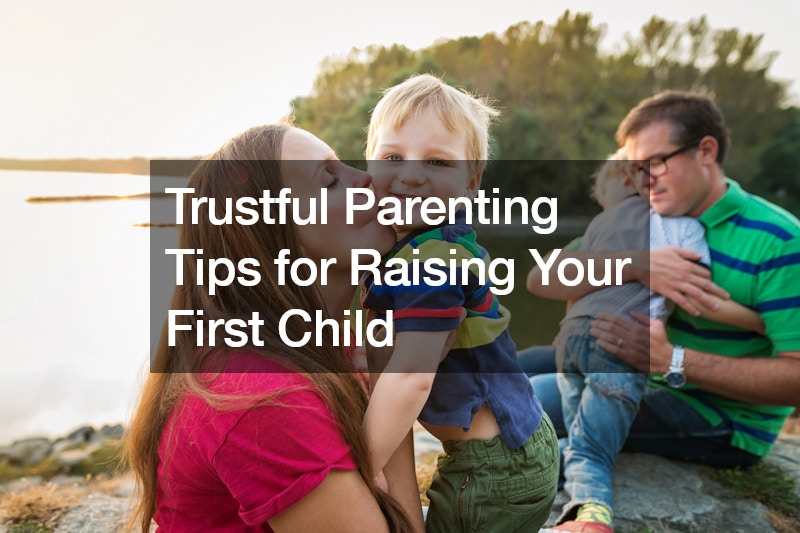

Parenting is a journey filled with challenges and rewards, where trustworthy and effective guidance is crucial. Trustful parenting fosters a nurturing and reliable environment, ensuring the mental, emotional, and physical well-being of children. Whether you’re navigating the early stages of child development or preparing for significant milestones, having a comprehensive understanding of various aspects of parenting is valuable. The purpose of this article is to provide insightful and detailed information on topics like children’s therapy, selecting the right dentist, choosing appropriate care programs, and more. Each section will cover a specific area, offering practical advice and highlighting the importance of trustful parenting. By the end of this article, you’ll have a thorough understanding of how to foster a supportive and secure environment for your child, ultimately aiding their overall development. This guide also encompasses essential topics like occupational therapy for autism, breast feeding, and the role of a pregnancy surrogate, ensuring that you’re well-equipped with knowledge to handle diverse parenting scenarios. Trustful parenting should extend beyond basic care, emphasizing the significance of reliability and assurance in every aspect of upbringing. With this in mind, let’s delve into the essentials of trustful parenting, starting with children’s therapy.
Active Listening

Active listening is a cornerstone of effective parenting, crucial for nurturing a strong bond and promoting emotional well-being in children. It goes beyond simply hearing words; it involves understanding the underlying emotions and perspectives behind what your child communicates. When parents actively listen, they convey respect, empathy, and validation, which are essential for building trust and open communication. Actively listening to your child involves giving them your full attention without distractions, such as putting away phones or turning off the TV. It also means observing their non-verbal cues—facial expressions, body language, and tone of voice—which often convey more than words alone. Reflective listening techniques, such as paraphrasing what your child says to confirm understanding, demonstrate that you are genuinely engaged in their thoughts and feelings. Active listening creates a safe space for children to express themselves openly. It encourages them to share their joys, fears, and concerns, knowing they will be heard and respected. This practice not only strengthens the parent-child relationship but also helps children develop crucial skills in articulating their emotions and solving problems. Active listening fosters mutual understanding and strengthens the emotional connection between parents and children. By prioritizing this skill, parents can create a supportive environment where their children feel valued, understood, and empowered to navigate life’s challenges.
Children’s Therapy
Children’s therapy is a critical component in addressing developmental and behavioral challenges. One significant area is occupational therapy for autism, which focuses on helping children develop the skills they need for daily living and independence. Trustful parenting plays a crucial role in this process, ensuring that children feel safe and supported as they work through their challenges. Occupational therapy for autism aims to improve sensory processing, motor skills, and social interactions. By incorporating trustful parenting techniques, parents can create a therapeutic environment at home that reinforces the progress made during therapy sessions. Consistency and patience are key, as children with autism often require time and repetition to master new skills. Trustful parenting also involves working closely with therapists to understand specific strategies and interventions. Open communication between parents and therapists ensures that therapy goals are aligned with the child’s needs and that progress is continuously monitored. This collaborative approach fosters a supportive network for the child, enhancing the overall effectiveness of occupational therapy for autism.
The Right Dentist
Selecting the right dentist for your child is another crucial aspect of trustful parenting. A pediatric dentist is specially trained to handle the unique dental needs of children, making them the ideal choice for your child’s oral health care. They understand the importance of creating a positive and reassuring experience for young patients. Trustful parenting involves researching and selecting a pediatric dentist who not only has the necessary qualifications but also exhibits a caring and approachable demeanor. Children are often anxious about dental visits, and a trustful environment can significantly alleviate their fears. Building a trusting relationship with the dentist ensures that your child receives consistent and compassionate care. Regular dental check-ups with a pediatric dentist can prevent common issues such as cavities and misaligned teeth. By fostering a routine of dental hygiene and trustful parenting practices at home, you can ensure that your child’s oral health is well-maintained. This proactive approach not only prevents dental problems but also instills lifelong habits of good oral care.
Care Programs
Finding the right child care programs is an essential part of trustful parenting. Quality care programs provide a safe and stimulating environment for children, promoting their social, emotional, and cognitive development. Parents need to evaluate various options to ensure that the chosen program aligns with their values and meets their child’s needs. Trustful parenting involves thoroughly researching potential child care programs, visiting facilities, and meeting with caregivers. It’s important to observe how children are engaged and whether the staff fosters a nurturing and supportive atmosphere. Trustworthy programs should prioritize children’s well-being and development, offering activities that stimulate learning and creativity. Maintaining open communication with child care providers is vital. Trustful parenting means staying informed about your child’s progress and any concerns that may arise. By building a strong partnership with caregivers, parents can ensure that their child’s experience in the care program is positive and enriching, contributing to their overall happiness and growth.
The Right Schooling

Choosing the right school is a significant decision in trustful parenting. While there are various educational options, private schools often offer smaller class sizes and specialized programs that cater to individual student needs. It’s important to consider what environment best supports your child’s learning and development. Trustful parenting involves researching private schools to understand their teaching philosophies, curricula, and extracurricular activities. Visiting schools and speaking with administrators and teachers can provide valuable insights into the school’s culture and values. Ensuring that the school’s approach aligns with your parenting style and educational goals is crucial. Trustful parenting means staying actively involved in your child’s education. Regular communication with teachers and participation in school activities helps monitor academic progress and address any concerns promptly. By fostering a collaborative relationship with the school, parents can support their child’s success and well-being in a trusted educational environment.
Feeding Your Child
Nutrition is a cornerstone of healthy child development, and trustful parenting plays a pivotal role in ensuring that children receive the best possible nourishment. Breast feeding, in particular, offers numerous health benefits for both mother and child, providing essential nutrients and fostering a strong emotional bond. Trustful parenting means supporting a mother’s choice to breastfeed and ensuring that she has access to the resources and support needed. This includes education on proper breast feeding techniques, understanding infant hunger cues, and addressing any challenges that may arise. A supportive environment encourages successful breast feeding and contributes to the child’s overall health. As children grow, trustful parenting continues to guide nutritional choices. Introducing a variety of healthy foods and establishing regular mealtime routines promote healthy eating habits. Engaging children in meal planning and preparation fosters a sense of responsibility and encourages them to make nutritious choices, laying the foundation for lifelong wellness.
Summer Camp
Summer camp can be a valuable and enriching experience for children, offering opportunities for socialization, skill development, and personal growth. Trustful parenting involves selecting a summer camp that aligns with your child’s interests and provides a safe and supportive environment. When choosing a summer camp, parents should consider factors such as the camp’s philosophy, activities offered, and the qualifications of the staff. Trustful parenting means ensuring that the camp has a strong emphasis on safety and supervision, with a low camper-to-staff ratio. This helps create a positive experience where children can explore new interests and build confidence. Communication with camp directors and staff is essential in trustful parenting. Understanding the camp’s policies, daily schedules, and emergency procedures provides peace of mind and ensures that your child is in good hands. By fostering a trusting relationship with the camp, parents can support their child’s summer adventures and growth.
Buy a Dog

Adding a pet to the family can be a rewarding experience, and choosing the right breed is crucial. Labradoodles, for example, are known for their friendly and gentle nature, making them an excellent choice for families with children. Trustful parenting involves careful consideration and preparation when introducing a new pet to the household. Trustful parenting means ensuring that the decision to buy a dog is well thought out and that the family is ready for the responsibility. This includes educating children on how to interact with the new pet, establishing routines for feeding and exercise, and providing proper training to ensure the dog’s well-being. A Labradoodle can be a wonderful addition to the family, but trustful parenting involves creating a harmonious environment where both the pet and the children feel safe and loved. Regular veterinary care, a nutritious diet, and plenty of affection help foster a strong bond between the family and the new pet, contributing to a joyful and enriching experience for all.
Helping Other Families

Trustful parenting also extends to helping other families in need. One way to provide support is through selling your eggs, offering hope to couples struggling with infertility. This generous act can create a profound impact, helping others achieve their dream of becoming parents. Trustful parenting involves understanding the process and emotional implications of donating eggs. It requires careful consideration and a compassionate outlook. Working with reputable fertility clinics ensures that the procedure is conducted ethically and with the donor’s well-being in mind. By selling your eggs, you become part of a larger community dedicated to fostering family and supporting those who face challenges in their parenting journey. Trustful parenting is about nurturing and extending kindness, creating a ripple effect of support and care that benefits multiple families.
Surrogacy Tips
Surrogacy is another meaningful way to help other families, allowing individuals or couples to experience the joy of parenthood. Serving as a pregnancy surrogate requires a deep sense of trustful parenting and a commitment to the well-being of both yourself and the intended parents. Trustful parenting means thoroughly understanding the surrogacy process, including the physical, emotional, and legal aspects involved. Selecting a reputable surrogacy agency is crucial for ensuring a supportive and transparent journey. Open communication with the intended parents helps establish trust and a positive relationship throughout the pregnancy. Being a pregnancy surrogate is a profound act of generosity, and trustful parenting extends to ensuring that your own family and children are well-prepared for this journey. Educating them about the process and maintaining open dialogue helps them understand and support this meaningful contribution to another family’s happiness.
Adopting Tips
Adoption is a beautiful way to expand your family, providing a loving home to a child in need. Trustful parenting is essential in navigating the adoption process and ensuring a smooth transition for the new family member. Being well-informed and prepared contributes to a positive adoption experience. Trustful parenting involves researching different types of adoptions, including domestic, international, and foster care adoptions. Understanding the legal requirements and working with reputable adoption agencies helps streamline the process. It’s important to build a network of support, including other adoptive families, to share experiences and advice. Once the adoption is complete, trustful parenting continues with creating a nurturing and inclusive environment for your adopted child. Celebrating their cultural background, sharing their adoption story, and providing emotional support are key. Ensuring that all family members embrace trustful parenting principles helps foster a sense of belonging and security for the child.
Trustful parenting is the foundation of a nurturing and supportive family environment. It encompasses various aspects of child-rearing, from children’s therapy and dental care to selecting the right schooling and nutrition. By emphasizing trust and consistency, parents can ensure their child’s overall well-being and development. Trustful parenting also involves making informed decisions regarding extracurricular activities like summer camps and introducing pets, such as a labradoodle, to the family. Helping other families through acts like selling your eggs or becoming a pregnancy surrogate exemplifies the selflessness and compassion inherent in trustful parenting. Adoption is another profound way to practice trustful parenting, offering a loving home to a child in need. By giving careful consideration to each decision and maintaining open communication, parents can create a secure and supportive environment for their children. Ultimately, trustful parenting is about fostering relationships built on trust, love, and mutual respect, ensuring a positive and fulfilling parenting journey.


